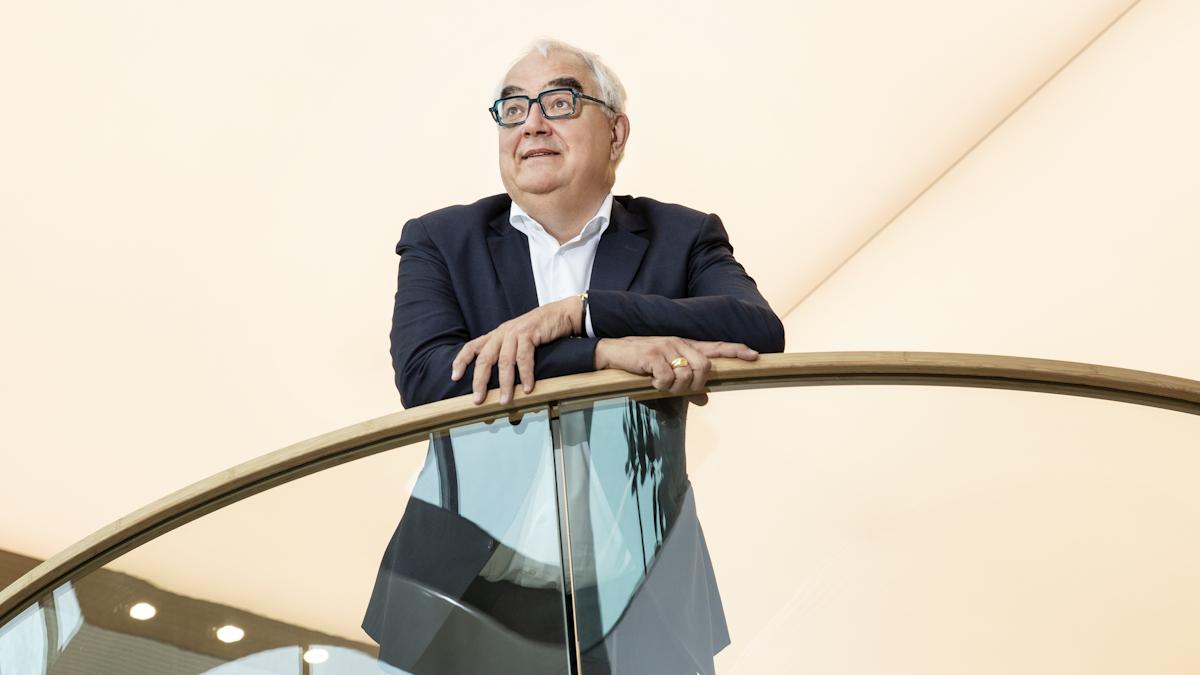Galapagos unveils plan to split, hiving off its drugs unit

Galapagos' chief executive Paul Stoffels
Belgian biotech Galapagos is mixing things up again via a plan to split in two, separating its innovative medicines and cell therapy businesses, which will result in the loss of around 300 jobs or around 40% of its headcount.
Under the proposal, the company's pipeline of cell-based therapies for cancer would be retained under the Galapagos banner, with the drug development unit spun out as a Euronext-listed operation with €2.45 billion (around $2.5 billion) in cash that will focus on "building a pipeline of innovative medicines through transformational transactions," said the company.
The plan will see Galapagos' 10-year, $5.1 billion R&D alliance with Gilead Sciences – first signed in 2019 and billed at the time as a groundbreaking new partnering model – significantly amended after a series of disappointments.
Galapagos will regain full rights to its pipeline, subject to payment of single-digit royalties to Gilead on net sales of certain products, according to a statement from the Mechelen-based biotech. Meanwhile, the drug development unit, provisionally dubbed SpinCo, will retain ties with Gilead, which will remain a collaboration partner and have representation on its board.
The decision comes just a couple of years after Galapagos embarked on a major restructuring under chief executive Paul Stoffels, shedding staff and ending R&D in various therapeutic categories, including fibrosis and kidney disease, in order to concentrate its efforts on immunology, oncology, and virology.
Stoffels said the split will unlock shareholder value and allow SpinCo to "pursue strategic business development opportunities to help bring innovative therapies to patients all over the world facing unmet medical needs."
The plan is to stop working on small-molecule drugs, including TYK2 inhibitor GLPG3667, which is in phase 2 trials for systemic lupus erythematosus (SLE) and dermatomyositis, and seek development partners for these programmes.
Meanwhile, the Galapagos cell therapy business will start its new life with around €500 million in cash to bring forward programmes led by CD19-targeting CAR-T candidate, GLPG5101, for relapsed/refractory non-Hodgkin lymphoma (NHL), which generated preliminary results in the phase 1/2 ATALANTA-1 trial at the 2024 ASH congress.
At the time of separation, which is expected to take place in mid-2025, Gilead will hold approximately 25% of the outstanding shares in both Galapagos and SpinCo, according to the statement.
"The planned reorganisation is a difficult but necessary step, but one that will position Galapagos for sustainable growth and value creation," said Stoffels. The workforce reductions will result in the closure of a site in France and trim Galapagos' annual cash burn to between €175 million to €225 million.
Meanwhile, Gilead’s chief financial officer Andrew Dickinson said the company "fully supports the separation and believes it creates additional value for all of Galapagos’ shareholders and for SpinCo to explore opportunities in emerging therapies and in areas of high unmet need."












